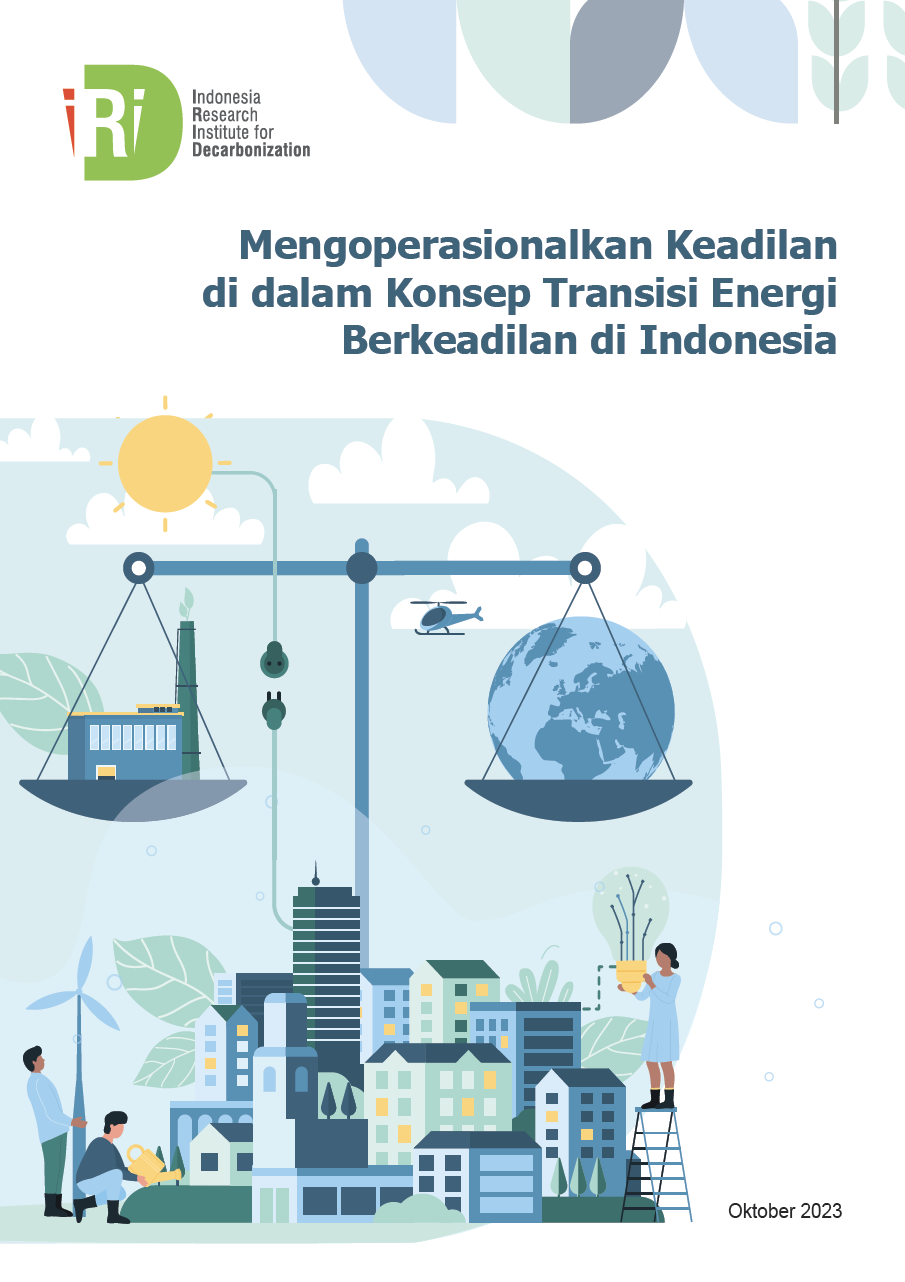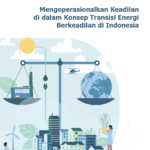There are several international financing initiatives for Indonesia to do just energy transition, such as the Just Energy Transition Partnership (JETP) and the Energy Transition Mechanism (ETM). However, in most cases, the financing for energy sector only applies for the technical aspects and forgetting the social-economy elements entailed. Therefore, it is important to understand how to operationalize the just-related aspects, so it becomes more tangible to be measured, monitored, and evaluated and thus financed. As Indonesia Research Institute for Decarbonization (IRID) finds it important, a focus group discussion on "Operationalizing a Just-Related Aspects in the Context of Just Energy Transition in Indonesia" was held in 25 October 2023 to gather more understanding on the matter.
The discussion covers three elements that are just-related: workforce, environment, and human rights. Several points that were raised in the discussion related to those elements are the following:
A. Workforce
• The Government of Indonesia will focus on increasing job opportunities, vocational training, internship opportunities, and professional certification in the renewable energy sector. However, it is also important for these programs to be accessible to all. Related to the required competency, identifying the right strategic partners that could match with the Ministry of Manpower’s plan will also be crucial. For example, Balai Latihan Kerja (BLK) or job training center, in certain areas will need to collaborate and cooperate with Ministry of Energy and Mineral Resources (MEMR) to meet the required competences in the renewable energy sector.
• Providing basic protections for the community and social security for the affected workers, including informal workers, are equally important in just energy transition. The inequality between formal and informal workers needs to be addressed, particularly regarding to the basic labor protections. For example, formal workers in the coal sector are protected by big companies that can afford severance pay, relocation cost, and others. But for the informal workers, there is no basic protection nor any social security available for them. Most of the informal workers consist of vulnerable groups, such as women or low-income mothers.
B. Environment
• Related to the mining sector in Indonesia, the Ministry of Village, Development of Disadvantaged Regions and Transmigration (Kementerian Desa, Pembangunan Daerah Tertinggal, dan Transmigrasi) acknowledged that this sector contributed to the economic growth of 12.22%, with Administration of Non-Tax Revenue (Penerimaan Negara Bukan Pajak/PNBP) reaching up to 170% compared to the set rate. However, the challenge lies in the mining regulations that caused socio-economic and cultural impacts, specifically in villages around the mining areas. Environmental damages in these areas threatens biodiversity, degrades water, and air quality.
• Regarding to the environmental permit issuance, all procedures need to be enacted both at the ground level and at the national level. At the ground level, all activities or businesses (not only those energy-related) need to comply with AMDAL (Analisis Dampak Lingkungan or Environment Impact Assessment). While AMDAL is more at the project level, SESA (Strategic Environmental and Social Assessment) has wider scope ranging from the district/city level, provincial, to the national level. Aside from that, SESA does not only cover one type of businesses, but it also includes other affected businesses.
C. Human rights
• The acceleration of energy transition, including through the development of new and renewable energy, need to respect the rights of the affected local communities, particularly in regards to land acquisition. Obstacles such as the potential conflicts between companies and communities over land ownership, still existed. In this context, participants acknowledged the importance for the local communities to understand their rights, such as rights for their land, a healthy environment, and rights to make complaints to the authorities. In this regard, the Government of Indonesia plays an important role in increasing the community awareness and capacity through assistance, facilitation, and cooperation between villages or with third parties, in accordance with Undang-Undang No. 6 Tahun 2014. Some lessons can be taken from the village government in East Halmahera on how crucial and important it is to improve the community awareness. The improvement was done by having a funding agreement with the related company in East Halmahera, to allocate some fund as a part of their Corporate Social Responsibility (CSR) for community empowerment activities.
• Prioritizing the human rights principles in each policy is considered as an investment to create participatory, transparent, fair, effective, and efficient governance. In the context of a just energy transition, this process cannot be conducted solely by the Government. It is important to identify supporting factors, such as funding for the “just” elements (such as, social, environmental, human rights) and how to access the funding itself.
• Human rights are the inherent rights that every human has since their birth. In its implementation, it becomes the essence of procedural rights which can help the government and the non-government to work together. For example, the government should provide a space for public participation, create a platform, network, and to maintain it. This space should be treated as an investment since the result allows for more transparency and inclusivity processes. Eventually, human rights should be seen as an investment, and not a cost.
D. Other issues
• The issue of the just energy transition should emphasize on the non-technical aspects, and not only its technical aspects. This is due to the facts that the technical aspects of just energy transition can be addressed when there is demand and it is economically feasible.
• All energy transition plans that will be carried out or have been carried out must be clearly stated in the energy transition roadmap. The question then, who will coordinate the policy formulation process and how the roadmap be formulated and implemented? After the roadmap is developed, then there should be a planning process conducted by related ministries and government entities, regarding to the implementation of the roadmap, from the national level to the sub-national level, even to the village level.
Share:






